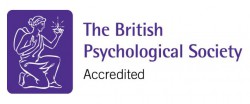Should I have my child assessed for specific learning difficulties?
What is dyslexia?
Dyslexia is a language processing difficulty that occurs across the range of intellectual abilities, often causing difficulty with reading, spelling and writing. It is on a continuum, meaning that all people with dyslexia will experience its effects in a unique way. As well as problems attaining fluent reading and spelling abilities, individuals with dyslexia may also experience difficulties with memory, sequencing, organisation and orientation.
How will dyslexia impact a child’s learning?
Every dyslexic child will present in a different way. It could be that they have difficulty with reading, it could be reading comprehension, it could be reading speed and fluency, or they might not be reading at all. It could be that they struggle copying from the board, their handwriting, or they might have trouble writing long pieces of text.
Dyslexia may also have no observable effect on an individual’s literacy ability however; and might instead be more obvious in their memory and organisational skills. For example, they could get lost in a big secondary school, or have trouble being punctual and following a long list of instructions. Students might also have difficulty with coordination (and therefore appear clumsy), and may often lose or misplace personal items.
Who should I speak to if I have concerns?
As a parent, you should always foster a good relationship with your child’s school: speak to them first to show that you have concerns. The first port of call should always be the class teacher at primary level, whilst at secondary level, it could be the pastoral tutor, the head of year or the form tutor. If they can’t alleviate your concerns and give you the information that you need, you can also go to the teacher responsible for special needs throughout the school, known as the SENCo (Special Educational Needs Coordinator). In larger schools, there may be a SEN coordinating team (with more than one SENCo) which may include teaching assistants in addition to teachers.
What would be the next step to a diagnosis?
There are various screening tools which can identify a risk of dyslexia, but having one or two of the difficulties listed doesn’t necessarily mean that dyslexia is the cause. For dyslexia to be identified, a full assessment is required. This can be carried out by someone appropriately qualified; for example, a specialist teacher or an educational psychologist, and you should always check that their qualifications are up to date and that they are aware of the necessary tests required for children of different ages. For older children, the assessor should have current knowledge of the Joint Council for Qualifications (JCQ) examination access arrangements and reasonable adjustments.
Full diagnostic assessments can be carried out from the age of about six, but a much clearer picture will be found if you can wait until your child is eight, provided support is in place within school before this. By the age of eight, it is easier to rule out other difficulties which may often resolve themselves as your child matures. If the assessment identifies dyslexia, recommendations will be given as to the ways forward: how you can help your child at home. If you share the report with your child’s school, it will also help them to understand and help your child in more effective ways within the classroom.
An assessment takes about three hours, and will be tailored to your child’s specific needs based on the information you have provided. Prior to the assessment, you will be asked to complete a short questionnaire so that the assessor can find out more about your child’s history. There will be sections for both your child and your child’s teacher to comment, if they choose to do so. These comments can often be very helpful and illuminating. It would also be very useful for you to provide the assessor with a copy of your child’s most recent school report, as well as copies of any previous assessments that they have had, such as those carried out by a Speech and Language Therapist or an Occupational Therapist.
How will dyslexia affect my child in the long term?
Dyslexia is something that an individual is born with, and something they learn to manage. It should not be viewed as a barrier to learning, provided the right support is provided in the classroom setting and, if required, the child receives specialist intervention. Many dyslexic children, young people and adults cope very well and are highly successful at what they do. If an individual is diagnosed early and has the right support at home and in school, there is no reason to believe that they cannot achieve their full educational potential.
Call About-Dyslexia on 01992 589 159 or email us (enquiries@about-dyslexia.co.uk) if you want to discuss this topic further. Also get in touch if you would like references on this subject


